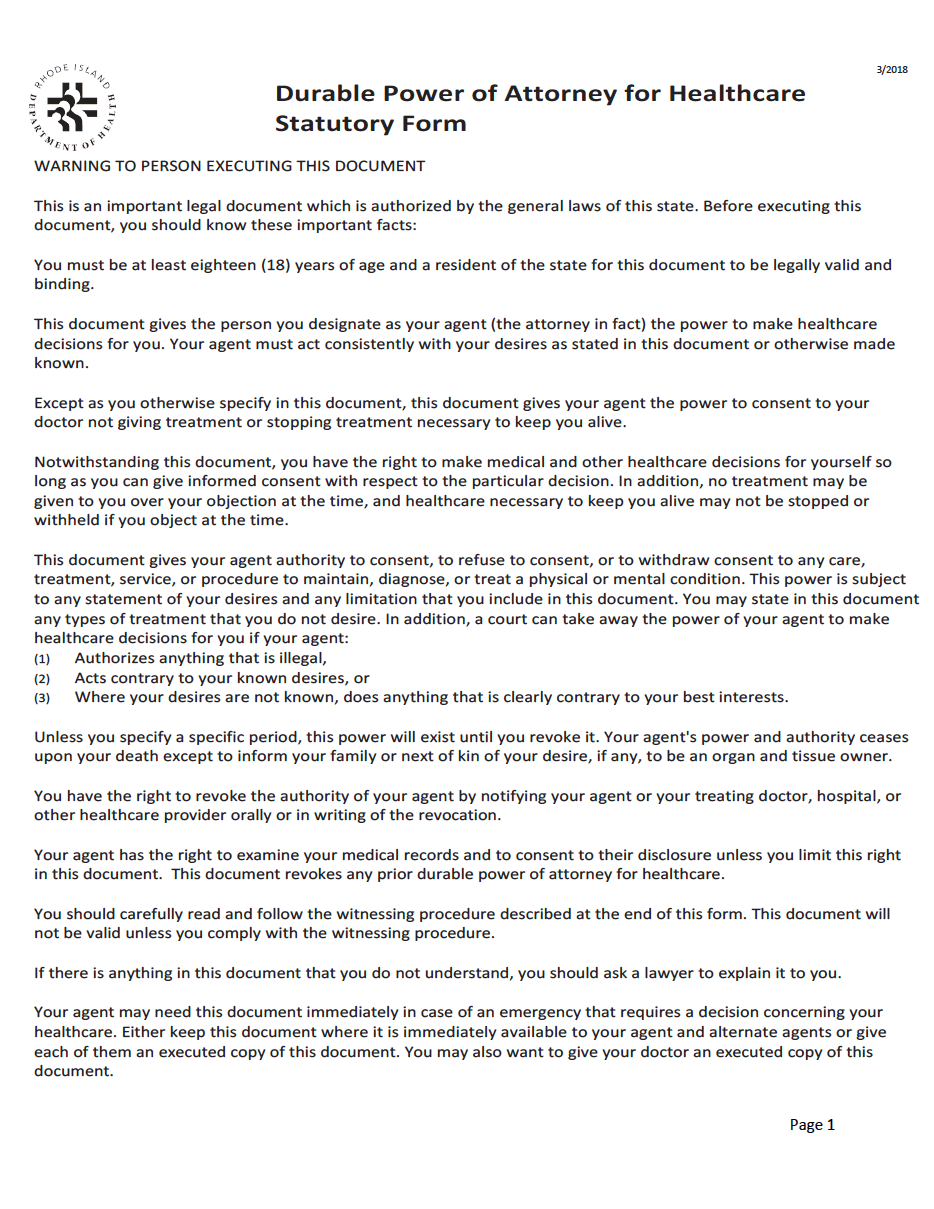Rhode Island Advance Directive Form
A Rhode Island advance directive combines a medical power of attorney and a living will, thus allowing the agent to carry out a principal’s health-related wishes and make treatment decisions on their behalf. The medical power of attorney allows the agent to make the choices, whereas the living will includes the principal’s preferences. The agent (and the principal’s health care team) only refer to this advance directive if the principal suffers an emergency or terminal illness that causes incapacitation.
The principal can give the agent complete or partial authority over their medical decisions. For example, the form lists their preferred treatment if they experience a medical event or illness that leaves them unable to communicate. However, if they have not provided details on a specific situation, the agent must choose for them. The agent may have to give or withdraw consent to treatment and make other decisions, such as pain management, doctors, or health care facilities. They may also have to choose where the principal lives, review and discuss medical records, and sign documents.
The appointed agent must be at least eighteen (18) years of age and a Rhode Island resident. By signing, they agree to make health care decisions for the principal if they cannot do so for themselves. The appointed agent cannot be a health or primary care provider or employee of the health care provider unless they are a relative. They also cannot be an assisted living facility operator or nonrelative employee.
The form allows the principal to choose two (2) alternate agents (who replace the primary agent if they cannot fulfill the role). The principal can change the agent for any reason, and the agent can back out at any time. A judge can also take away the agent’s authority if they act illegally, decide against the principal’s wishes, or make choices that are not in the principal’s best interest.
Signing requirements (§ 23-4.10-2 & § 23-4.11-3(a)): The principal must sign the form in front of a Notary Public or two (2) qualified witnesses.
